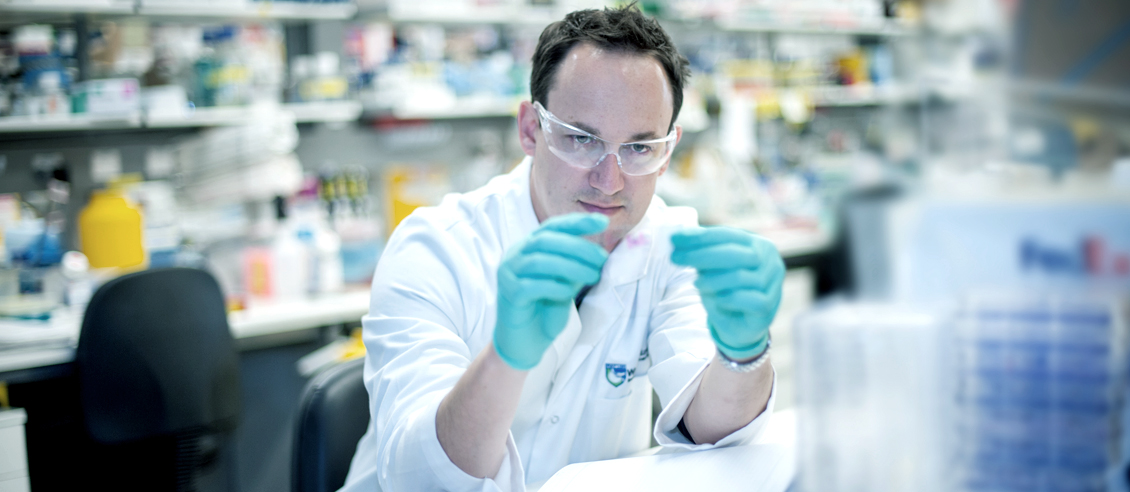Finding a novel way to kill all myeloma cells.

Myeloma is a cancer of the plasma cells. Your plasma cells are responsible for your immunity, they secrete large quantities of antibodies to fight off infection. Finding an effective treatment for myeloma has unfortunately baffled researchers for decades. Prof Stephen Nutt and his colleagues at the Walter Eliza Hall Institute are taking a different approach to finding a way to treat myeloma thanks to the funding provided through the Leukemia & Lymphoma Society-Snowdome Foundation- Leukaemia Foundation Translational Research Project grant.
In order to kill myeloma cells Stephen and his team are trying to determine genes that are critical for the plasma cell to survive. It has taken a decade of work, but they believe one gene, in particular, is the most attractive to target. That gene is IRF4. Experimental research supports this finding with results demonstrating that inactivating IRF4 function kills all human multiple myeloma cells. However, the IRF4 protein has been described as ‘undruggable’ by pharmaceutical companies. Not to be deterred, the team at WEHI are taking a very clever approach to either disrupt the function of IRF4 or destroy IRF4 altogether.
This approach involves identifying the partner protein IRF4 needs to bind with in order to function. The team had a major breakthrough in their research when they identified the partner protein for IRF4. This partner not only binds to IRF4 but is also essential for the survival of myeloma cells. Now the team needs to screen a library of 260,000 molecules to identify one that will be able to bind to its partner. This will effectively destroy the myeloma cell’s chance of survival.
The team are confident that the funding provided through this grant will provide them with enough research time to obtain good leads on the chemical structures that need to be developed. If you believe this research is ground-breaking and has the potential to help cure myeloma, then please donate to Snowdome. You have the potential to give Australian myeloma blood cancer patients the best chance for a cure.
*image of Dr Simon Willis working on this research project at the Walter & Eliza Hall Institute
